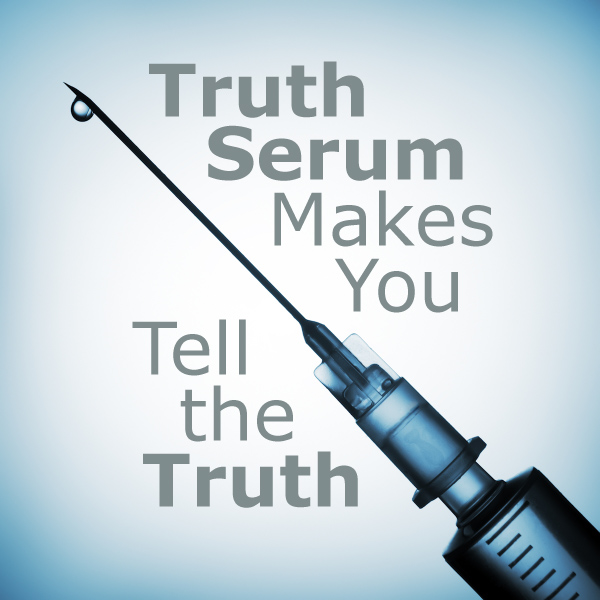Does “truth serum” make you tell the truth?
The first chemical referred to as truth serum was scopolamine, which has been used to treat various medical ailments from when it was first synthesized in 1880. In the 1920s, Robert House, a Dallas doctor, used it on prisoners who claimed to be innocent under the narcotic influence of the drug. The prisoners were granted new trials and subsequently released. The press seized upon these developments and hatched the term “truth serum.”
Soon thereafter, scopolamine and other drugs such as sodium pentothal were used to probe the minds of psychiatric patients, criminal suspects and captured soldiers.
The problem, as noted by Scott Linfield of Psychology Today was that “there’s good reason to believe that truth serums merely lower the threshold for reporting virtually all information, both true and false.” After decades of trial and research (including a 25-year study by the CIA), others reached the same conclusion. Subjects were more willing to talk when under the influence of these drugs, but their fantasies and fabrications were just as likely to come through as real memories. They might confess to a crime they didn’t commit, even a crime that was impossible for them to commit.
In 1963 the U.S. Supreme Court ruled that confessions produced via truth serum were “unconstitutionally coerced” and inadmissible.
Finally, the typical movie scene where someone is given a single injection and starts spouting the truth moments later is also a fabrication. Truth serums were typically administered by multiple injections over the course of several hours!




